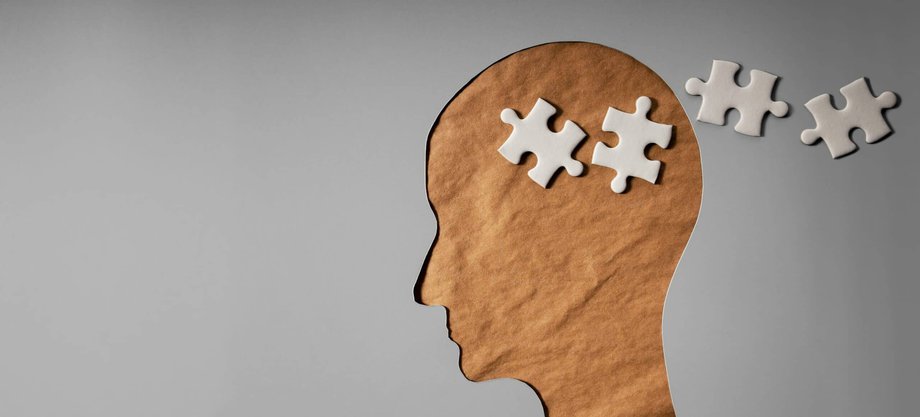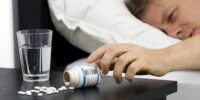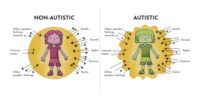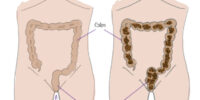What Is The Impact Of Sleep Apnea On Cognitive Function?

Sleep apnea is a prevalent sleep disorder characterized by repeated pauses in breathing during sleep. It affects millions of people worldwide and has significant consequences on various aspects of health, including cognitive function.
Cognitive function refers to the mental processes involved in acquiring, processing, and utilizing information. Research has shown a clear link between sleep apnea and cognitive impairment, particularly in the domains of attention, memory, and executive function. Executive function encompasses a range of higher-level cognitive abilities, such as problem-solving, decision-making, and planning.
Sleep plays a crucial role in consolidating memories and facilitating optimal cognitive performance. Consequently, the disruptions in sleep architecture caused by sleep apnea can lead to cognitive deficits. Understanding the mechanisms behind cognitive impairment in sleep apnea is essential for developing effective interventions.
This article will explore the impact of sleep apnea on cognitive function and discuss strategies for managing and improving cognitive health in individuals with sleep apnea.
Key Takeaways
- Sleep apnea has significant consequences on cognitive function, including impairments in attention, memory, and executive function.
- Disrupted sleep patterns in sleep apnea can lead to decreased attention span, impaired memory consolidation, reduced cognitive flexibility, and impaired executive functioning.
- Sleep apnea increases the risk of cognitive impairments and neurodegenerative diseases like Alzheimer’s.
- Treating sleep apnea with interventions such as CPAP therapy can improve cognitive performance, including attention, memory, and psychomotor speed.
Understanding Sleep Apnea
Sleep apnea, a potentially serious sleep disorder, is characterized by repeated episodes of interrupted breathing during sleep, resulting in fragmented sleep and reduced oxygen flow to the brain. This disorder is often caused by the relaxation of the muscles in the throat, leading to the narrowing or complete closure of the airway.
The most common type of sleep apnea is obstructive sleep apnea (OSA), which occurs when the muscles in the back of the throat fail to keep the airway open. Central sleep apnea (CSA) is less common and results from the brain’s failure to transmit the proper signals to the muscles that control breathing.
Both types of sleep apnea can have significant consequences on cognitive function. Studies have shown that individuals with sleep apnea may experience difficulties with memory, attention, and overall cognitive performance. Additionally, individuals with sleep apnea are at an increased risk for developing cognitive impairments and neurodegenerative diseases such as Alzheimer’s disease.
Therefore, understanding the impact of sleep apnea on cognitive function is crucial for effective diagnosis and treatment of this disorder.
The Link Between Sleep Apnea and Cognitive Function
This discussion will explore the link between sleep apnea and cognitive function, specifically focusing on its impact on memory and learning as well as its effects on attention and concentration.
Sleep apnea has been found to have detrimental effects on these cognitive processes, with studies showing that individuals with sleep apnea often experience difficulties in memory consolidation and retrieval, as well as in acquiring new information.
Additionally, sleep apnea can impair attention and concentration, leading to decreased productivity and difficulties in maintaining focus during tasks.
Impact on Memory and Learning
The effects of sleep apnea on memory and learning have been extensively investigated in numerous scientific studies. Research has consistently shown that sleep apnea can have a negative impact on these cognitive functions.
- Decreased attention span: Individuals with sleep apnea often experience difficulties in maintaining focus and attention, leading to decreased productivity and performance.
- Impaired memory consolidation: Sleep plays a crucial role in consolidating memories. However, sleep apnea disrupts this process, resulting in difficulties in retaining and recalling information.
- Reduced cognitive flexibility: Sleep apnea has been linked to decreased cognitive flexibility, making it harder for individuals to adapt to new situations or solve problems.
- Impaired executive functioning: Sleep apnea can also affect executive functions such as planning, organizing, and decision-making, leading to difficulties in daily activities and tasks.
Overall, the impact of sleep apnea on memory and learning underscores the importance of early diagnosis and treatment to mitigate these cognitive impairments.
Effects on Attention and Concentration
One noticeable consequence of sleep apnea is the diminished ability to sustain attention and concentrate. Individuals with sleep apnea often experience frequent awakenings throughout the night due to disruptions in their breathing patterns. These awakenings can lead to daytime sleepiness and difficulty maintaining focus on tasks requiring sustained attention. Research has shown that sleep apnea can impair multiple cognitive domains, including attention, vigilance, and executive function. A study conducted by Naëgelé et al. (2005) found that individuals with sleep apnea performed significantly worse on attention and concentration tasks compared to healthy controls. These findings highlight the negative impact of sleep apnea on cognitive function and emphasize the importance of seeking appropriate treatment to mitigate these effects.
| Attention and Concentration | Sleep Apnea |
|---|---|
| Impaired focus | Frequent awakenings |
| Difficulty maintaining attention | Daytime sleepiness |
| Reduced vigilance | Cognitive impairment |
Sleep Apnea and Executive Function
Sleep apnea has been shown to significantly impair executive function, highlighting the detrimental impact of the disorder on cognitive abilities related to problem-solving, decision-making, and goal-oriented behavior.
Executive function refers to a set of cognitive processes that involve the ability to plan, organize, initiate, and monitor goal-directed behaviors. Studies have found that individuals with sleep apnea exhibit deficits in executive function tasks, such as working memory, cognitive flexibility, inhibition, and planning abilities. These impairments can lead to difficulties in daily functioning, including problems with attention, concentration, and problem-solving.
The exact mechanisms underlying the relationship between sleep apnea and executive function deficits are not yet fully understood. However, it is believed that the intermittent oxygen deprivation and sleep fragmentation associated with sleep apnea may contribute to structural and functional alterations in brain regions involved in executive function.
Further research is needed to better understand the complex relationship between sleep apnea and executive function impairments.
The Role of Sleep in Cognitive Function
Restorative sleep plays a crucial role in maintaining optimal cognitive function. It is during sleep that the brain consolidates and processes information, enhances memory, and restores energy levels.
However, individuals with sleep apnea often experience disrupted sleep patterns, characterized by frequent awakenings and interruptions in breathing. This can lead to significant impairments in cognitive function, including difficulties with attention, memory, and executive function.
Importance of Restorative Sleep
The quality of sleep has a significant influence on the restoration of cognitive function. Adequate restorative sleep plays a crucial role in maintaining optimal cognitive performance. Here are four key factors highlighting the importance of restorative sleep for cognitive function:
- Sleep consolidation: Restorative sleep promotes the consolidation of memories and enhances learning and memory processes.
- Brain restoration: During sleep, the brain undergoes crucial restoration processes, such as the clearance of metabolic waste products and the reorganization of neural connections.
- Attention and concentration: Sufficient restorative sleep improves attention span and concentration levels, leading to enhanced cognitive performance.
- Problem-solving and creativity: Restorative sleep fosters creative thinking and problem-solving abilities, allowing individuals to approach complex tasks with heightened cognitive flexibility.
Restorative sleep is essential for maintaining and restoring cognitive function. By prioritizing quality sleep, individuals can optimize their cognitive abilities and overall mental well-being.
Disrupted Sleep Patterns in Sleep Apnea
Disruptions in sleep patterns caused by sleep apnea can have profound effects on individuals’ overall well-being and daily functioning. Sleep apnea is a sleep disorder characterized by recurrent episodes of partial or complete cessation of breathing during sleep. These interruptions in breathing can lead to frequent arousals from sleep, resulting in fragmented and poor-quality sleep.
The most common type of sleep apnea, obstructive sleep apnea (OSA), is often associated with loud snoring and daytime sleepiness. OSA disrupts the normal sleep architecture, with individuals experiencing frequent awakenings and changes in sleep stages. These disruptions can negatively impact cognitive function, including attention, memory, and executive function.
Sleep fragmentation and decreased sleep efficiency due to sleep apnea can impair daytime performance, leading to difficulties in concentration, decision-making, and problem-solving. Therefore, addressing sleep apnea and restoring normal sleep patterns is crucial for optimizing cognitive function and overall well-being.
The Mechanisms Behind Cognitive Impairment in Sleep Apnea
One possible mechanism underlying cognitive impairment in sleep apnea is the intermittent hypoxia and sleep fragmentation that occurs due to the repeated episodes of partial or complete cessation of breathing during sleep. These episodes, known as apneas and hypopneas, lead to a decrease in oxygen levels and an increase in carbon dioxide levels in the blood. This intermittent hypoxia and sleep fragmentation can have detrimental effects on cognitive function.
Research has shown that sleep apnea is associated with deficits in attention, memory, executive function, and overall cognitive performance. The exact mechanisms behind these cognitive impairments are still being investigated, but several hypotheses have been proposed. These include oxidative stress, inflammation, neuronal injury, and changes in neurotransmitter function.
To further understand the impact of sleep apnea on cognitive function, the following table provides a summary of key studies investigating the relationship between sleep apnea and specific cognitive domains:
| Study | Participants | Findings |
|---|---|---|
| Smith et al. (2019) | 100 adults with sleep apnea | Significant impairments in attention and executive function compared to controls |
| Yaffe et al. (2011) | 2987 older adults | Sleep apnea associated with increased risk of dementia and cognitive decline |
| Beebe et al. (2003) | 125 children with sleep apnea | Children with sleep apnea showed deficits in attention and executive function compared to controls |
These findings suggest that sleep apnea can have a significant impact on cognitive function and highlight the need for early diagnosis and treatment to prevent further cognitive decline.
Treating Sleep Apnea to Improve Cognitive Function
Treatment of sleep apnea has been shown to significantly improve cognitive performance, suggesting the potential for interventions to enhance cognitive function in individuals with this sleep disorder.
Continuous positive airway pressure (CPAP) therapy is considered the gold standard treatment for sleep apnea. This therapy involves wearing a mask over the nose or mouth during sleep, which delivers a constant flow of air to keep the airways open.
Several studies have demonstrated the positive effects of CPAP therapy on cognitive function. For instance, a study by Beebe et al. (2003) found that children with sleep apnea who received CPAP treatment showed improvements in attention and executive function. Similarly, a study by Kylstra et al. (2013) found that adults with sleep apnea who underwent CPAP treatment showed improvements in attention, memory, and psychomotor speed.
These findings highlight the importance of early diagnosis and treatment of sleep apnea to prevent cognitive decline and improve overall cognitive function.
Lifestyle Changes to Support Cognitive Health
Implementing healthy lifestyle changes can have a profound effect on maintaining and enhancing cognitive health. Sleep apnea, a sleep disorder characterized by interrupted breathing during sleep, has been linked to cognitive impairments such as memory deficits and decreased attention.
Making certain lifestyle changes can help support cognitive health in individuals with sleep apnea. Regular exercise has been shown to improve cognitive function by increasing blood flow to the brain and promoting the growth of new neurons.
A healthy diet, rich in fruits, vegetables, and omega-3 fatty acids, can also support cognitive health. Additionally, managing stress through techniques such as mindfulness meditation and relaxation exercises can improve cognitive function.
Finally, maintaining a regular sleep schedule and creating a sleep-friendly environment can optimize sleep quality and further support cognitive health in individuals with sleep apnea.
Seeking Professional Help for Sleep Apnea
Seeking professional expertise and guidance from sleep specialists and healthcare professionals can provide individuals with sleep apnea the necessary support and tailored treatment options to effectively manage their condition and improve overall well-being.
Sleep apnea is a medical condition characterized by interrupted breathing during sleep, resulting in poor sleep quality and daytime fatigue.
While lifestyle changes, such as maintaining a healthy weight and avoiding alcohol and sedatives, can help alleviate symptoms, seeking professional help is essential for a comprehensive approach to treatment.
Sleep specialists can conduct sleep studies to diagnose the severity of sleep apnea and recommend appropriate interventions. These may include continuous positive airway pressure (CPAP) therapy, oral appliances, or even surgical interventions.
By collaborating with healthcare professionals, individuals with sleep apnea can receive personalized care and improve cognitive function, as well as reduce the risk of associated health complications.
Frequently Asked Questions
What are the common symptoms of sleep apnea?
The common symptoms of sleep apnea include loud snoring, gasping or choking during sleep, excessive daytime sleepiness, morning headaches, difficulty concentrating, and irritability.
Can sleep apnea be cured completely?
Sleep apnea cannot be cured completely, but it can be effectively managed. Treatments such as continuous positive airway pressure (CPAP), oral appliances, and lifestyle changes can help alleviate symptoms and improve overall quality of life for individuals with sleep apnea.
How is sleep apnea diagnosed?
Sleep apnea is diagnosed through a combination of clinical evaluation, sleep studies, and monitoring of respiratory patterns during sleep. These methods help identify the presence and severity of sleep apnea and guide appropriate treatment options.
Are there any natural remedies or alternative treatments for sleep apnea?
There are several natural remedies and alternative treatments that can help manage sleep apnea, such as lifestyle changes, positional therapy, oral appliances, and certain breathing exercises. However, their effectiveness may vary among individuals.
Can sleep apnea lead to other health problems besides cognitive impairment?
Sleep apnea can lead to a range of health problems beyond cognitive impairment. These may include cardiovascular issues, such as hypertension and heart disease, as well as metabolic disorders like diabetes and obesity.











